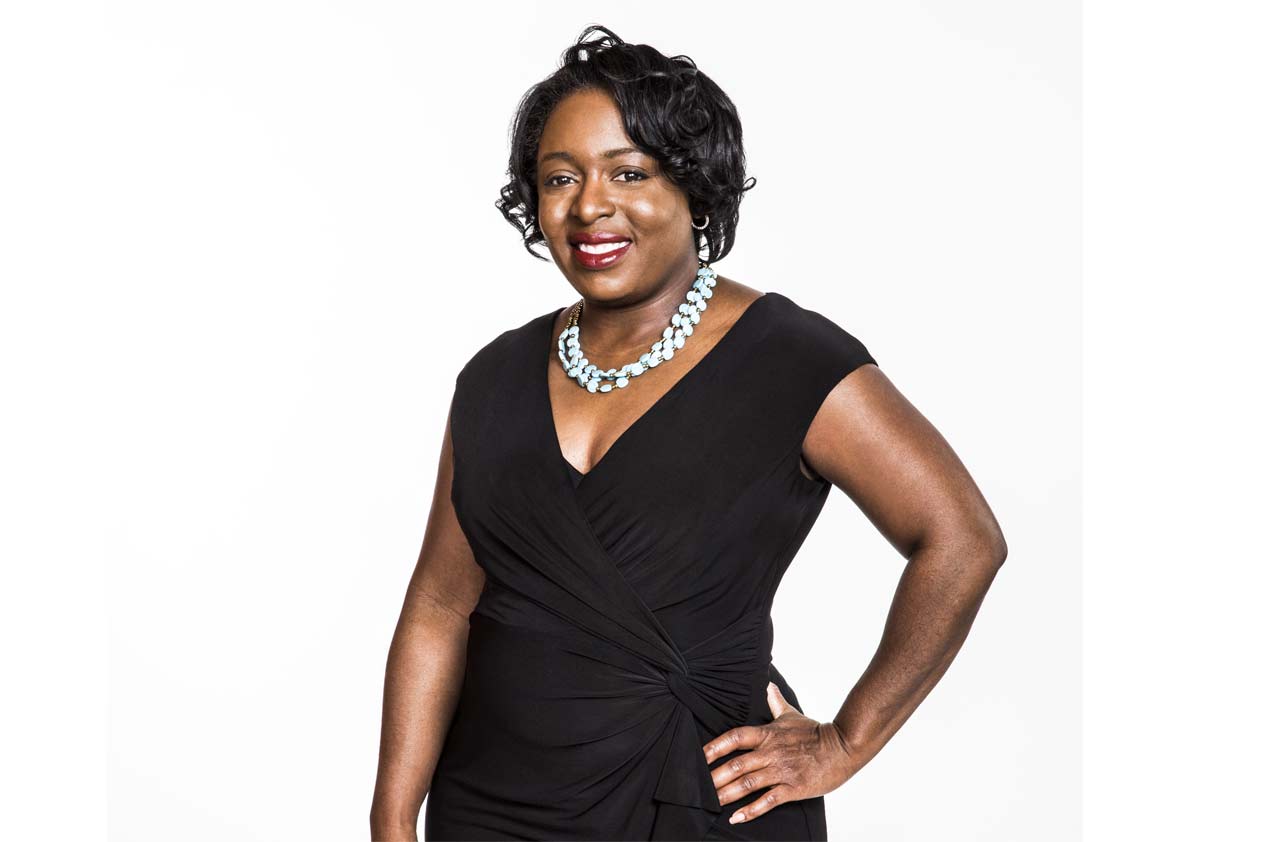Small-Business Success Story: Black Girls Code
A former engineer introduces young women to computer coding.


Kiplinger's spoke with Kimberly Bryant (pictured at left), 48, founder and executive director of Black Girls Code, a San Francisco-based tech company, about why she left a stable career as an engineer to start her own company. Read on for an excerpt from our interview:
See Our Slide Show: 6 Surprisingly Simple Ideas That Made Millions
You’re an engineer? Yes. At Vanderbilt University’s engineering school, which I attended, there weren’t that many women, and not many women of color. I had not one female instructor. I graduated in 1989 with a degree in electrical engineering and worked in the chemical and biotech industries for 25 years.
Why Black Girls Code? In 2010, I began networking with the intention of founding a start-up. Everywhere I went, people asked, “Where are the women in tech? Where are women of color?” They weren’t available to hire, and they weren’t in the pipeline. That summer my daughter, Kai, now 16, attended a game-design camp at Stanford University with a handful of girls and 35 or more boys. She said the instructor paid more attention to the boys than the girls, and that was a moment for me. I ultimately realized that I wanted to create a program for girls to provide them with education, skills and mentorship.

Sign up for Kiplinger’s Free E-Newsletters
Profit and prosper with the best of expert advice on investing, taxes, retirement, personal finance and more - straight to your e-mail.
Profit and prosper with the best of expert advice - straight to your e-mail.
How did you begin? I connected with a developer from Code for America [which promotes open-source technology and supports civic-minded start-ups] and two other biotech colleagues to put together a six-week pilot program with a computer-science and coding curriculum. We launched in late 2011 with 12 girls from Bayview–Hunters Point, a San Francisco neighborhood with high unemployment and few resources.
Where are you now? We’ve reached more than 3,000 girls of color, ages 7 to 17, from communities whose members are underrepresented in the tech industry. We offer after-school and weekend workshops and summer camps in programming, game development, robotics and tech entrepreneurship, plus hackathons, during which the girls work together to build problem-solving apps. More than three-fourths of our participants attend on full or partial scholarships that cover a nominal fee, if there is one. We have chapters in nine cities as well as pilot programs in Dallas and Miami.
How are you funded? We fund-raise for the entire program locally and nationally. Our corporate partners support the program with funding or in-kind donations of food, space and equipment. For example, Google supports the chapter in New York City, and Verizon supports Raleigh and Washington, D.C. In 2014, our budget was about $750,000, and this year it’s slightly more than $1 million. We also rely on more than 2,000 dedicated volunteers.
Do you make a living? Yes. I initially worked full-time at my job and at Black Girls Code, but in mid 2013 I bit the bullet and left the corporate world. I couldn’t take a full salary until 2014. I make a lot less than the six figures I made in private industry.
What’s your greatest challenge? To grow quickly enough to meet demand. We have as many as 40 cities that would like to have a chapter. We also hope to build an internship pipeline for our older and advanced students.
Your greatest satisfaction? We have several students who now attend colleges such as Spelman and Dartmouth, where they’re pursuing degrees in computer science and are recognized as technology leaders. They point to Black Girls Code as the primary influence on their decision to go into tech.
Get Kiplinger Today newsletter — free
Profit and prosper with the best of Kiplinger's advice on investing, taxes, retirement, personal finance and much more. Delivered daily. Enter your email in the box and click Sign Me Up.

-
 The AI Doctor Coming to Read Your Test Results
The AI Doctor Coming to Read Your Test ResultsThe Kiplinger Letter There’s big opportunity for AI tools that analyze CAT scans, MRIs and other medical images. But there are also big challenges that human clinicians and tech companies will have to overcome.
By John Miley Published
-
 The Best Places for LGBTQ People to Retire Abroad
The Best Places for LGBTQ People to Retire AbroadLGBTQ people can safely retire abroad, but they must know a country’s laws and level of support — going beyond the usual retirement considerations.
By Drew Limsky Published
-
 How to Find Foreclosed Homes: Best Foreclosure Listings Sites
How to Find Foreclosed Homes: Best Foreclosure Listings SitesMaking Your Money Last Find foreclosed homes for sale on these foreclosure listing websites. Search for properties on these free, paid or government sites.
By Bob Niedt Last updated
-
 Four Tips for Renting Out Your Home on Airbnb
Four Tips for Renting Out Your Home on Airbnbreal estate Here's what you should know before listing your home on Airbnb.
By Miriam Cross Published
-
 Is Relief from Shipping Woes Finally in Sight?
Is Relief from Shipping Woes Finally in Sight?business After years of supply chain snags, freight shipping is finally returning to something more like normal.
By David Payne Published
-
 Economic Pain at a Food Pantry
Economic Pain at a Food Pantrypersonal finance The manager of this Boston-area nonprofit has had to scramble to find affordable food.
By Emma Patch Published
-
 The Golden Age of Cinema Endures
The Golden Age of Cinema Enduressmall business About as old as talkies, the Music Box Theater has had to find new ways to attract movie lovers.
By Emma Patch Published
-
 Pricey Gas Derails This Uber Driver
Pricey Gas Derails This Uber Driversmall business With rising gas prices, one Uber driver struggles to maintain his livelihood.
By Emma Patch Published
-
 Smart Strategies for Couples Who Run a Business Together
Smart Strategies for Couples Who Run a Business TogetherFinancial Planning Starting an enterprise with a spouse requires balancing two partnerships: the marriage and the business. And the stakes are never higher.
By Alina Tugend Published
-
 Fair Deals in a Tough Market
Fair Deals in a Tough Marketsmall business When you live and work in a small town, it’s not all about profit.
By Emma Patch Published